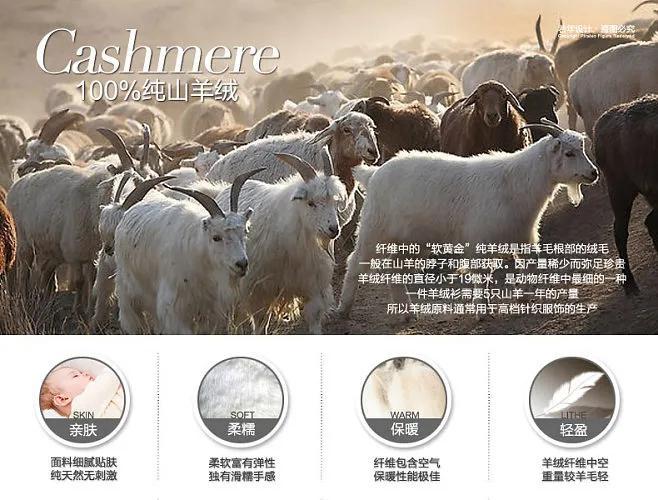Cashmere is one of the most popular fibers in the world. Its fine hair is softer, lighter, and can insulate three times better than wool. It has been a prized material for centuries, but its quality comes at a price, and a luxury cashmere sweater can cost more than $500. So why is it so expensive?
Cashmere is renowned for being one of the softest fibers in the world, and its fine hair means it can be woven into incredible Soft, luxurious clothing that’s built to last, but that comes at a price.
Cashmere does not come from sheep as you might think, but from goats. These goats are found throughout the Himalayas, where temperatures can drop to -30°C, and their frigid habitat means they grow incredibly thick, warm coats. Goats have two layers of hair, a thick wire guard coat and a super soft cashmere undercoat. Although a sheep can produce at least every year
3kg of wool, but a cashmere goat only gives you about 200g.
Due to the small yield per goat, supply is severely limited and the fiber can only be collected once a year. Even if you harvest the fiber, once the oil, dirt and thicker hair are removed, the usable weight is halved and cashmere still accounts for only 0.5% of the world’s total wool production.
Once you have pure cashmere, there is a lot of work involved in processing it. The fibers are first dyed to the correct color and aerated to prevent them from clumping together. The softness of cashmere means it needs to be handled carefully throughout the process, and any chemicals or over-processing can damage the fiber.
The fibers are then carded. This process unravels and arranges the hair into thin sheets so they can be spun into yarn. The quality of cashmere is graded according to its fineness and length, and high-quality individual cashmere hairs can be as fine as 14 microns.
Cheaper cashmere products have become very popular recently. These claim to offer the quality of cashmere at a lower price, and some may use a slightly lower grade of cashmere, or a different processing method to make the end result more affordable. Although they are relatively cheap, they usually cost at least twice as much as wool.
There are also extreme cases of mislabeling, with some products purported to be 100% cashmere found to contain yak hair or even mouse fur. If you do find a very cheap product that claims to be cashmere, it may be unbelievable.








